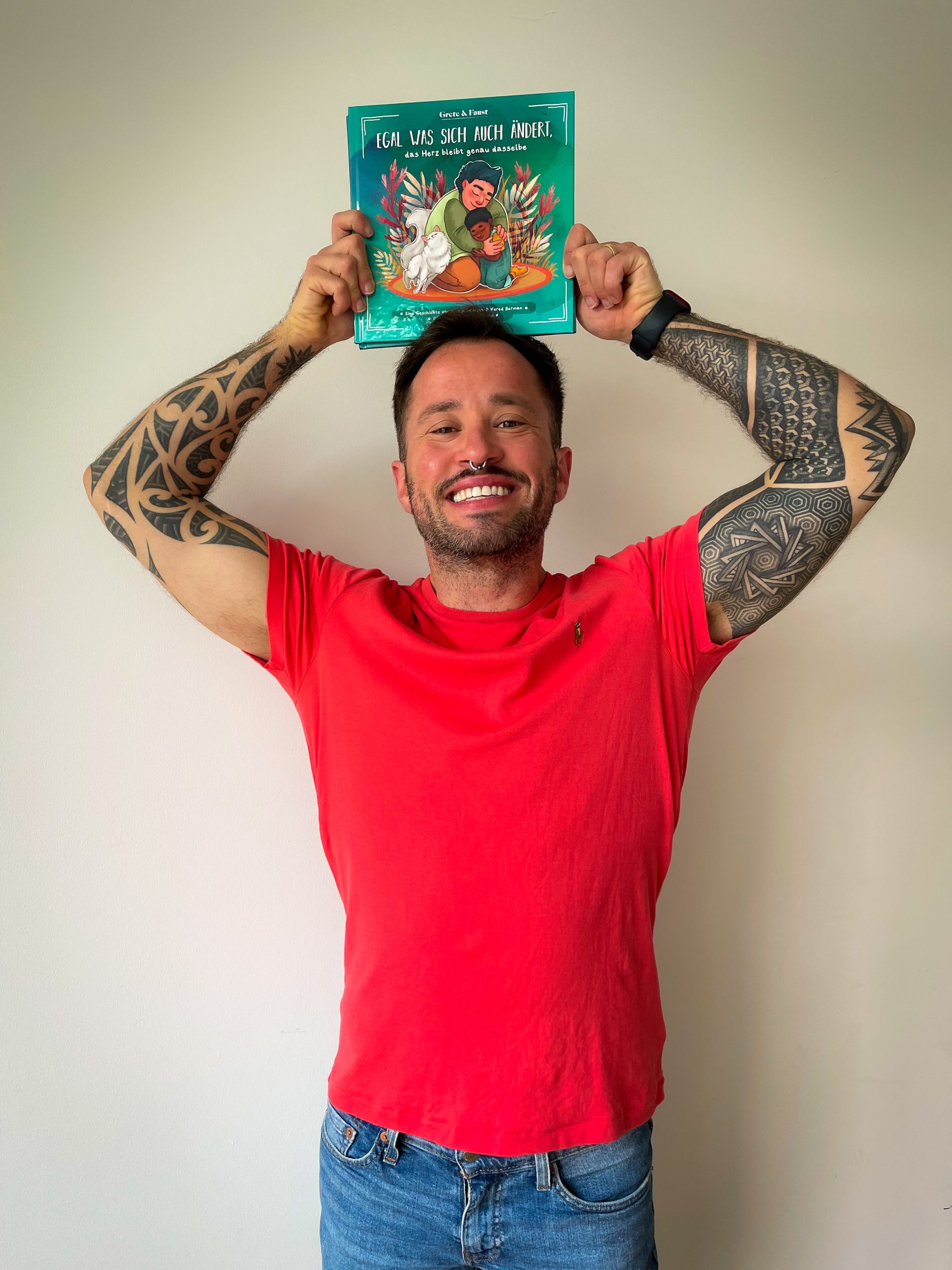#DiverseVoices: Dr. Max Appenroth (no pronouns/he)
So if children’s books had the power to shape children’s identities, then I would have to be straight today and identify with the gender I was assigned at birth.

Dr. Max Appenroth is a MoreDiversity Ambassador, trans activist and diversity consultant. With his consultancy Diversity Factory, Max helps companies create inclusive working environments.
Max, you wrote the children's book "Transition Means Your Heart Stays the Same". What inspired you to write this book and why do you think it is important to deal with such topics in children's books?
This children’s book is a little corona baby. I was walking around Tempelhofer Feld in Berlin back when you were only allowed to walk alone or in your household and thought what it would be like for my little daughter if I had come out as trans not ten years ago, but at that time. I thought a children’s book would be a great resource to bring this topic closer to young people from their perspective. After all, it’s not unusual for an important adult in a child’s life to begin a transition. So far there hasn’t been anything on the subject – I wanted to change that.
How do you think stories like the one in your book can influence children's thinking and attitudes towards trans people and gender diversity?
I believe that children are open-minded and curious about the topic. And if you provide them with equally open-minded resources to deal with the topic in a child-friendly way, it promotes this openness, positive curiosity and thus also acceptance of trans people in the long term. That children should not be confronted with these issues, or even that books on the subject make children trans, is a big fallacy. If you were to follow this logic, I wouldn’t even be allowed to exist as a proud queer trans person today. Because in my children’s books, there was only heterosexuality and cis. So if children’s books had the power to shape children’s identities, then I would have to be straight today and identify with the gender I was assigned at birth.
What reactions and feedback have you received from parents, teachers and children about your book? Are there any particular stories or feedback that have particularly touched you?
I get a lot of positive feedback about the book, and the fact that the first edition of the German version is already sold out and we had to reprint it speaks for itself. One mother wrote to me on Instagram that they read the book together as a family and everyone cried.
Because it was the same in the family: one of the parents had started a transition and when the child said: “I finally feel understood”, it was probably a very emotional moment for the family. Of course, something like that touches me too, because that’s exactly what the book was supposed to do.
To what extent do you see children's books as a tool for promoting values such as acceptance, empathy and understanding at nursery age?
As already mentioned, children are curious. They want to learn, they want to understand, they want to get to know the world. And it is precisely this curiosity that we should feed without bias because telling stories through children’s books that do not correspond to our biographies, life plans or ideas of the children and their families helps us to get to know each other better socially and to see that there are differences. Differences are nothing negative and getting to know them early on in a positive way can only be beneficial.
What challenges do you think there are when introducing diversity-conscious books in daycare centers, and how can these be overcome?
The biggest challenges are the reservations of adults. Often, however, it’s not just reservations, but their own insecurities about the various topics and the worry that they might not be able to do justice to the children’s questions. That’s why, for example, we’ve also added some reading material for adults at the end of our children’s book. To provide more contextual information for possible questions from the little ones.
What tips and recommendations would you give teachers and educational professionals for integrating children's books with topics such as gender diversity and trans identity into daycare centers?
The most important thing here too: Openness towards the topics. Teachers and educational professionals must understand their social responsibility and that they play an important role in the future acceptance of diversity among children. If they react strongly against diverse topics, this can also be transferred to the children. The same applies to their insecurity, and this must be avoided. I would therefore recommend that professionals take the time to deal with these issues and undergo further training.
What do you hope to gain in the long term from projects such as MoreDiversity's daycare book project and your own children's book regarding social change and the acceptance of diversity?
I very much hope that projects of this kind, which make knowledge about diversity accessible, will also promote social acceptance of our differences in the long term. Because I have great hope in the younger and, above all, the following generations that they will enable us to better utilize and understand the added value that lies in diversity. Because society will continue to diversify, that is already evident. And those who close their minds to this may end up alone, and we have to prevent that too.
